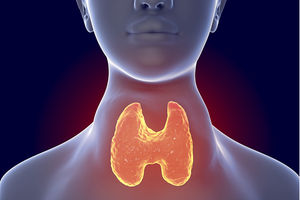Doctor, is excessive sweating a red flag?

What you need to know:
- Excessive sweating, including gustatory sweating, may also be triggered by other conditions such as diabetes, thyroid disease, nerve problems, hormonal changes and extreme emotional responses.
- There’s also a higher chance of having hyperhidrosis if there’s a close family member with the same.
Dear doctor,
I have been sweating a lot in the past few weeks even when I am just eating. How can I manage this? It’s embarrassing.
Muna
Dear Muna,
Sweating is a normal process that the body uses to regulate heat, and this tends to increase when the weather is hot. It is also normal to sweat when eating hot or spicy foods due to raised body temperature. However, when the sweating is excessive beyond temperature regulation, this is called hyperhidrosis. This is because the sweat glands are overactive, usually due to problems with nerve communication. This can affect the entire body, or it can be limited to certain areas such as the face, palms, feet and armpits.
There is also gustatory hyperhidrosis or Frey’s syndrome where the person sweats when eating any food, even cold food/drinks, or when they think about food. This may happen as a result of damage to the parotid gland and associated nerves from injury, infection, inflammation or surgery. This damage then leads to facial flushing and sweating on that side of the face every time the gland produces saliva.
Excessive sweating, including gustatory sweating, may also be triggered by other conditions such as diabetes, thyroid disease, nerve problems, hormonal changes and extreme emotional responses. There’s also a higher chance of having hyperhidrosis if there’s a close family member with the same.
While the excessive sweating is embarrassing, it may not have any serious medical complications. The constant wetness of the skin makes it easier to get other skin conditions like fungal infections, eczema and cracking.
Sweating and excessive sweating cannot be cured but they can be managed by ensuring good environmental air circulation, wearing cotton clothing, taking adequate amounts of water and avoiding direct sunlight. The doctor or pharmacy can prescribe aluminium chloride/chlorhydrate solution to apply to the most affected areas prescribed by the doctor or from a chemist. A skin specialist can also advise on any additional procedures that can be carried out to manage the sweating, if necessary. Any underlying conditions, if present, should be diagnosed and managed. Relaxation techniques and mental health support can also help reduce sweating due to anxiety or stress.
Dear Doctor,
In some schools, young girls are given tampons for menstrual hygiene. Should this be happening? Doesn’t this break their hymen?
Concerned Parent
Dear Concerned Parent,
The hymen is a thin sheet of tissue that stretches across the vaginal entrance. Normally, the hymen has an opening that allows normal vaginal secretions and menstrual blood to exit. It is also elastic and can easily stretch to accomodate a tampon without breaking. However, there are some hymen variants that may make it difficult for menstrual blood to easily flow out and the use of tampons may be difficult or impossible. These variants include:
> Imperforate hymen – There is no opening on the hymen and menstrual blood cannot get out. If this is not identified early in a child’s life, then it is identified during adolescence when there is lower abdominal pain and no period blood, and there may be urinary symptoms like a feeling of urgency, urinating frequently or feeling there is incomplete bladder emptying.
> Microperforate hymen – the opening is very small, and it may present a problem with exit of menstrual blood and use of tampons
> Cribriform hymen – the hymen has many small openings and use of a tampon is not possible
> Septate hymen – there’s a band of tissue across the hymen opening, creating two small openings, and the use of a tampon is not possible.
These variants can be easily treated using a minor surgical procedure to create an adequate opening.
Dear doctor,
For the past one week I have been having a lot of gas in my abdomen, and discomfort. During that time, I have only passed stool twice and it was so hard! What can I do to relieve this discomfort?
Samantha
Dear Samantha,
You seem to be experiencing bloating and constipation. Bloating refers to having a lot of gas in the digestive tract and it may be accompanied by abdominal discomfort, pain, feeling full and having abdominal distension. Constipation is defined as passing stool less than once in three days, having difficulty pushing out stool or having very hard or dry stool. Constipation can also trigger bloating.
Constipation may happen as a result of having inadequate fibre in diet and inadequate fluid intake. It can also occur following long periods of inactivity or as a result of having a lot of anxiety and stress. If you usually ignore the urge to pass stool, you can also develop constipation. Some medications may cause constipation as a side effect such as iron supplements, loperamide (taken to stop diarrhoea) and opioids.
Other factors that can contribute to constipation and bloating are infection, inflammatory conditions of the bowel, hyperacidity, problems with digestion and absorption, irritable bowel syndrome, problems with intestinal muscle movement, intestinal obstruction and other illnesses like liver disease, kidney disease, abdominal cancers and pelvic cancers.
There are also some foods and drinks that can cause bloating such as legumes, cabbage, artificial sweeteners and carbonated drinks. Some habits that can contribute to bloating are chewing gum and using a straw to drink.
Lifestyle measures to deal with the problem include having adequate fibre and fluid intake, physical exercise, avoiding fatty foods, taking food in smaller portions and eating more slowly. A food diary can help identify foods that worsen the symptoms so that they can be avoided. You also need a good toilet routine – go to the toilet at a regular time and place where you are comfortable, use the toilet when you feel the urge to, and you can use something to raise your legs so that your knees are above your hips when you are sitting on the toilet seat. These lifestyle changes usually work in a few days and should be maintained as part of your routine to avoid a similar situation in future. There are also over-the-counter medications that can ease the passing of stool and reduce the gassiness. It would also be beneficial to visit a doctor for examination, relevant tests and treatment, especially if the symptoms do not resolve in a few days.




